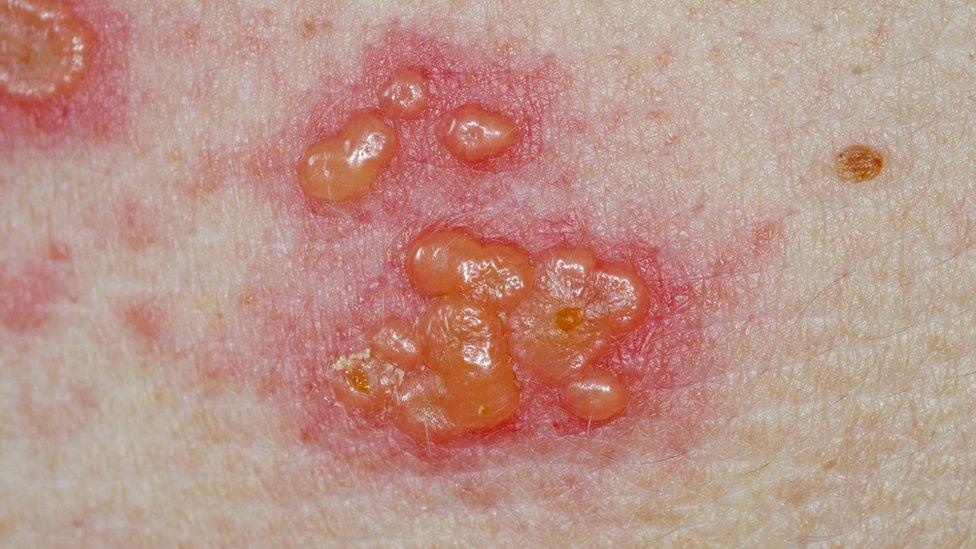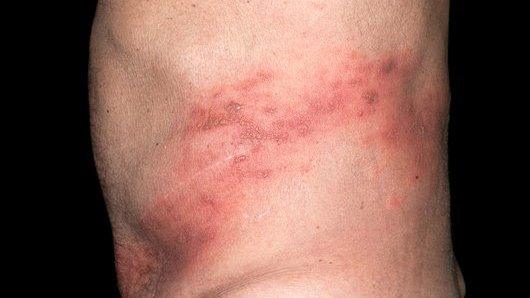Shingles patients in West of England needed for new treatment trial
- Published

One in three people will get shingles, an infection that happens when an old chickenpox infection is reactivated
Patients newly-diagnosed with shingles are being sought for a new study into the long term effects of the infection.
Researchers from the University of Bristol want to see if the anti-depressant amitriptyline can prevent post-herpetic neuralgia, a condition which causes intermittent or continuous nerve pain in an area of skin previously affected by shingles.
One in three will get Shingles, an infection that causes a painful rash.
They hope to recruit 850 patients.
Funded by NIHR Health Technology Assessment, doctors and researchers at the universities of Oxford, Southampton and Warwick are also involved.
Shingles happens when an old chickenpox infection is reactivated.
With the body's immune system keeping it in check, the virus can remain inactive in the nervous system for decades but can flare up later in life and emerge as shingles.

What is shingles?
The first signs of shingles can include a tingling or painful feeling in an area of skin or a headache or feeling generally unwell
A rash will appear a few days later
Usually you get the shingles rash on your chest and tummy, but it can appear anywhere on your body including on your face, eyes and genitals
The rash appears as blotches on your skin, on 1 side of your body only. A rash on both the left and right of your body is unlikely to be shingles
It can take up to 4 weeks for the rash to heal
You cannot spread shingles to others but people who have not had chickenpox before could catch chickenpox someone with the infection
Source: NHS, external

Lorelei Hunt, 68, was left with an problems after being diagnosed with shingles four years ago.
Those with the condition can experience symptoms, such as as stabbing, shooting and aching pain, for weeks or years.
Ms Hunt said she thought her shingles was "just going to be an inconvenience for a short while and that would be it."

Lorelei hunt has been living in pain since being diagnosed with shingles four years ago
She said "everything" hurt, "even the air touching your skin".
"You are constantly trying to pull away. It feels like an external stimulus but its actually your own body," she said.
"It just doesn't let you be."
'Prevent pain'
Through GP surgeries, doctors aim to recruit newly diagnosed shingles patients from the West of England, Wessex and Oxfordshire.
Aged over 50, half of the patients will be given amitriptyline nightly for ten weeks, a drug prescribed since the 1960s and was originally given in high doses to treat depression but nowadays is used at a low dose to treat nerve pain.
The other half will get "dummy" tablets.
Matthew Ridd, GP and professor of Primary Health Care at the University of Bristol, said there is some evidence from a small trial conducted in the 1990s that the drug reduced the prevalence of pain at three and six months.
Dr Ridd said if starting amitriptyline early on does help, the cheap medicine would prevent prolonged pain for thousands of people.

Follow BBC West on Facebook, external, Twitter, external and Instagram, external. Send your story ideas to: bristol@bbc.co.uk , external
Related topics
- Published14 June 2012

- Published8 April 2022

- Published2 September 2013
